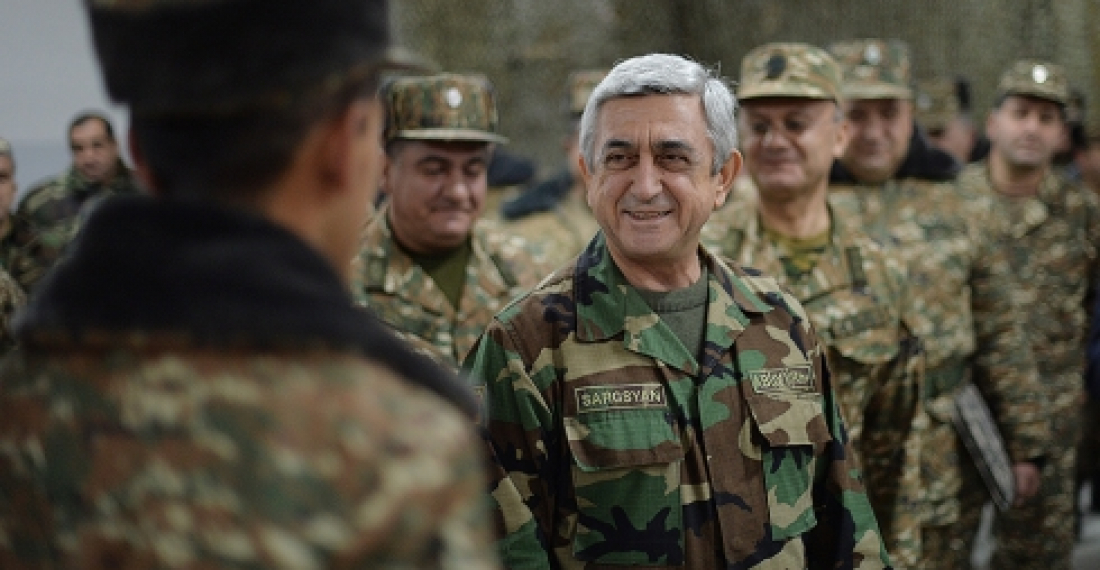Armenian President, Serzh Sargsyan, who is also the Commander-in-Chief of the Armenian Armed Forces, on Thursday (19 November) inspected the defense positions at the north-eastern border area of Armenia. Dresed in military fatigues, and cccompanied by the Minister of Defense, the President "toured military units, visited the defense positions, observed firsthand the combat readiness of the troops and the ongoing process of army building", according to the press service of the Presidency.
The north-eastern border of Armenia with Azerbaijan has seen an increase in tension in the last year with many reported incidents of exchange of fire between troops of the two countries - some of which have resulted in casualties, including civilians.
According to Armenian media, after his visit to the north-eastern border President Sargsyan travelled to Nagrono-Karabakh where he was expected to have discussions with the leadership of the self-declared, Nagorno-Karabakh Republic.
source: commonspace.eu
photo: President Sargsyan of Armenia meeting troops during an inspection of the country's north-eastern border, on 19 November 2015. (picture courtesy of the Press Service of the President of Armenia.)







